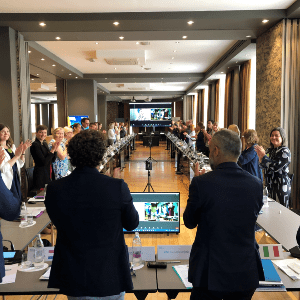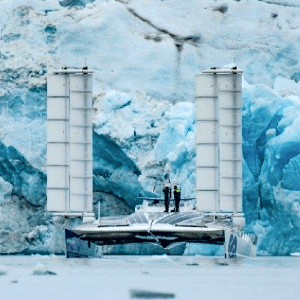
The hospitality industry has faced some significant challenges in recent years. The COVID-19 pandemic and the cost of living crisis, among other issues, have seen businesses having to make adjustments. Even once recovery from these hurdles is complete, there are potential concerns on the horizon. Key among these is how climate change might impact the future of the industry.
Hospitality businesses don’t necessarily need to think of this subject as an exercise in doomsaying. Taking the time at this relatively early stage to get to know the risks empowers companies to make effective adjustments. It’s also worth noting that tourists are more eco-conscious than ever, meaning that companies with a commitment to sustainability and resilience can be more attractive. With some knowledge and informed changes, hospitality can be more resilient in the future.
Adapting buildings
The hospitality industry is reliant on a range of different buildings to function. Hotels, restaurants, entertainment facilities, and information points, among others. Tourists expect to be safe and supported within these walls, alongside gaining positive experiences.
Yet, climate change is likely to have an impact on the integrity and sustainability of these structures. Rises in frequency and severity of storms threaten to cause damage. Extreme temperature fluctuations may impact the comfort of those within. This is just the tip of the potential issues.
As a result, it is vital for businesses in the hospitality industry to consider how to adapt their buildings. One useful approach is to explore some of innovations that make architecture resistant to climate change.
For instance, the Egyptian method of evaporative cooling can help minimize the effects of extreme heat. Wet pads are installed around the building, with moisture evaporating as warm air passes across the surface, taking the heat with it. In Germany, the effect of rising temperatures on buildings and reliance on air conditioning is being tackled with green roofs. These are specially designed roofs capable of taking the weight of embedded plants and shrubbery that absorb heat. As a result, the inner property is naturally cooler.
Where buildings are subject to storms, there are benefits to making them more aerodynamic. For instance, adapting roofs to have more slopes can make them more resilient to extreme wind. This can be particularly effective if there are central shafts installed to suck in air and reduce pressure on the roof.
Mitigating disruption
One clear concern for the hospitality industry is that climate change may be a risk to business continuity. Reports have suggested that weather incidents are top potential disruption factors, from severe tropical storms to wildfires. When left unchecked, these can cause significant economic losses, including to those businesses in the hospitality sector. Unfortunately, not enough companies are thorough in their preparation for maintaining business continuity across all types of potential incidents.
Therefore, it’s important for companies to closely examine their vulnerability to different types of climate scenarios. This begins with performing solid research on the current expectations for disasters in the local area. The Federal Emergency Management Agency (FEMA) National Risk Index for Natural Hazards is a good resource for this.
From here, hospitality businesses must take the time to run simulations on each plausible form of climate event. This can involve physical disruption drills that take businesses and staff members through issues they could face, allowing them to identify what elements of the business could be disrupted and the resources needed to address these more efficiently.
In general, it’s also wise to arrange backups for infrastructure, as this can seriously influence business continuity. Having reliable backup power supplies can mean companies and guests can maintain services and comfort even when grids have gone down. Renewable sources of electricity are certainly preferable here. For instance, installing solar power generators provides a sustainable source of energy, and makes businesses less reliant on centralized grids.
Minimizing tourist impact
Another point of focus for the hospitality industry is tourist impact. Climate change could negatively affect tourists’ experiences, which may impact the location’s reputation and ongoing popularity. Alongside this, tourists themselves have the potential to inadvertently damage or put pressure on the local environment. Reducing the impact by and to tourists amid climate change is a way to help secure the industry’s future.
This could involve providers switching focus away from individual tourist visiting spots. When designing tours, businesses should avoid taking groups to single locations and routes consistently. There’s no shortage of beauty spots — such as Venice — that are being excessively subjected to pollution and damage. Finding alternative places to visit is beneficial on a number of levels.
Firstly, it reduces the overall tourist footprint on individual spaces, not to mention mitigating the bandwidth for accidental damage. It also provides tour operators with more agility. Should climate-related extreme weather impact one of the key destinations, the alternative spots and routes offer guides and providers something to switch to.
Perhaps most importantly of all, businesses must educate tourists regarding the vulnerability of the destinations. They must give visitors guidance on how to behave around natural landscapes to minimize damage. It’s also wise to provide climate-friendly resources, such as access to bicycle rentals rather than relying on polluting vehicles.
Conclusion
As climate change continues, it’s vital for hospitality businesses to take preemptive action. This should include adapting buildings to be more resilient and planning effective continuity processes.
While many of the elements we’ve covered apply to individual companies, it’s also vital for local industry groups to work together. By sharing knowledge and resources there is a better chance for communities to thrive in spite of changes to the climate.
































